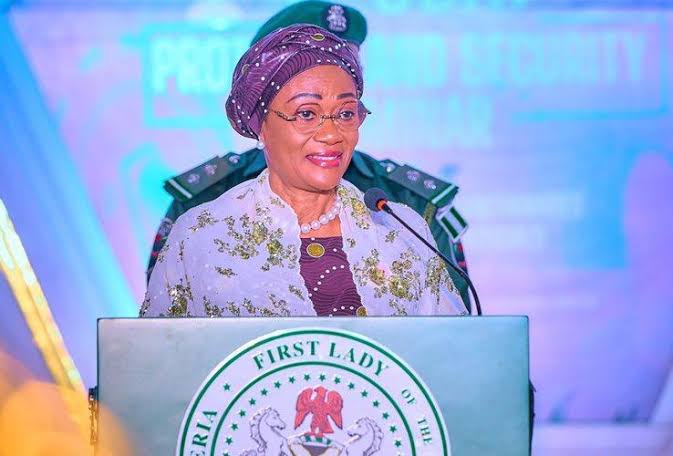The empowerment initiative spearheaded by Nigeria’s First Lady, Senator Oluremi Tinubu, in partnership with the Office of the Special Assistant to the President on Sustainable Development Goals, represents a significant stride towards achieving gender equality and promoting economic growth in Nigeria. The program, which aligns with Sustainable Development Goals 5 and 8, aims to empower women economically, enabling them to contribute meaningfully to national development. The distribution of essential business tools to 500 women entrepreneurs in Delta State marks a crucial phase of this initiative, reflecting the government’s commitment to inclusive growth and sustainable development.
The empowerment ceremony, held in Asaba, the Delta State capital, witnessed the distribution of vital business equipment, including deep freezers, gas cookers with ovens, generators, and grain grinding machines. These tools are intended to equip the beneficiaries with the necessary resources to establish and expand their businesses, fostering economic self-reliance and contributing to the overall prosperity of their communities. The First Lady, represented by the wife of the Delta State Deputy Governor, Mrs. Catherine Onyeme, emphasized the significance of women’s empowerment in nation-building and highlighted the alignment of the program with President Bola Ahmed Tinubu’s Renewed Hope Agenda. This agenda prioritizes inclusivity, economic growth, and sustainable development for all Nigerians, with a particular focus on empowering women economically.
The initiative acknowledges the pivotal role women play in driving economic progress and recognizes that their empowerment is essential for achieving the Sustainable Development Goals, particularly SDG-5, which focuses on gender equality, and SDG-8, which promotes decent work and economic growth. By providing women with the necessary tools and resources, the program seeks to create opportunities for them to become active participants in the economy, contributing to both their personal well-being and the nation’s overall development. The First Lady’s commitment to empowering women reflects a broader national effort to promote gender equality and create a more inclusive society.
Beyond the immediate impact of providing business tools, the empowerment program carries a deeper significance. It represents a strategic investment in human capital, recognizing that women’s economic empowerment is not only a matter of social justice but also a crucial driver of economic growth. By equipping women with the means to generate income and build sustainable businesses, the program contributes to poverty reduction, enhances food security, and fosters overall economic stability. Moreover, the program’s focus on women entrepreneurs recognizes their potential to create jobs and stimulate economic activity within their communities, creating a ripple effect of positive impact.
The wife of the Delta State Governor, Mrs. Tobore Oborevwori, represented by the Commissioner for Women Affairs and Social Development, Mrs. Pat Ajudua, urged the beneficiaries to maximize the opportunity provided by the empowerment program. She emphasized that the initiative was not merely a charitable act but a capacity-building endeavor aimed at shaping a brighter future for the women and their communities. The empowerment program aligns closely with Nigeria’s broader objectives of poverty alleviation and hunger eradication, two core pillars of the United Nations Sustainable Development Goals. It reflects the government’s dedication to inclusive growth through strategic partnerships and impactful interventions.
This empowerment initiative holds immense promise for transforming the lives of the 500 women beneficiaries and their communities. By equipping them with the tools and resources they need to succeed, the program paves the way for greater economic independence, improved livelihoods, and increased participation in the nation’s economic development. The program’s success will not only contribute to achieving the Sustainable Development Goals but also serve as a model for future empowerment initiatives, inspiring further efforts to promote gender equality and economic growth across Nigeria. This initiative serves as a testament to the power of collaborative efforts between government and civil society to address critical development challenges and create a more equitable and prosperous future for all.


